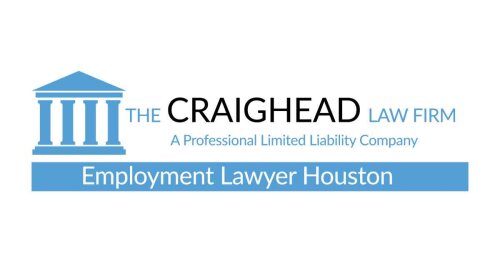Best Hiring & Firing Lawyers in Missouri
Share your needs with us, get contacted by law firms.
Free. Takes 2 min.
Or refine your search by selecting a city:
List of the best lawyers in Missouri, United States
About Hiring & Firing Law in Missouri, United States
Hiring & firing laws in Missouri govern the legal rights and responsibilities of both employers and employees during the employment process, including when an individual is hired and when their employment ends. Missouri is generally considered an "at-will" employment state, which means that either the employer or the employee can end the working relationship at any time, for any legal reason, or for no reason at all. However, there are important federal and state laws that offer protections against wrongful termination and discrimination. Understanding these laws is crucial for both businesses and workers to ensure fair and lawful employment practices.
Why You May Need a Lawyer
You might need a lawyer for hiring or firing matters in Missouri for several reasons. Common situations include being terminated under circumstances you believe are unfair or unlawful, such as being fired because of your race, gender, age, disability, or another protected characteristic. Businesses may require legal advice to draft compliant employment contracts, non-compete agreements, and employee handbooks, or to navigate a complex termination or layoffs while avoiding lawsuits. If you are asked to sign a severance agreement or are facing retaliation after reporting illegal conduct, a skilled attorney can help protect your rights. Additionally, disputes over pay, benefits, or final wage payments often benefit from legal guidance.
Local Laws Overview
Missouri follows the doctrine of at-will employment, but there are significant exceptions due to federal and state laws:
- Discrimination Protections: The Missouri Human Rights Act makes it illegal for employers to discriminate based on race, color, religion, national origin, sex, ancestry, age (40-69), or disability.
- Wrongful Termination: Employees cannot be fired for reporting unlawful activity (whistleblowing), for refusing to perform illegal acts, or for exercising their legal rights, such as filing a workers' compensation claim.
- Final Paycheck: Missouri law requires that fired employees receive their final paycheck on the day of termination, while those who quit must be paid their final wages by the next regular payday.
- Severance Agreements: Missouri law does not require employers to offer severance pay unless it is specified by contract.
- Hiring Considerations: Employers must comply with both state and federal laws when hiring, including requirements related to discrimination, background checks, and immigration verification (I-9 from federal law).
Frequently Asked Questions
What does at-will employment mean in Missouri?
At-will employment means that either the employer or the employee can end the employment at any time, for any reason that is not illegal, or for no reason at all, without prior notice.
Can I be fired without a reason in Missouri?
Yes, as an at-will employment state, your employer can fire you without giving a reason, as long as it does not violate state or federal law, such as firing due to discrimination or retaliation.
What if I think I was fired because of discrimination?
If you believe you were fired due to discrimination based on race, sex, religion, age, disability, or another protected status, you can file a complaint with the Missouri Commission on Human Rights or the federal Equal Employment Opportunity Commission.
Is my employer required to give me severance pay in Missouri?
No, unless your employment contract or a company policy specifically provides for severance pay, Missouri law does not require employers to offer it.
How quickly do I have to receive my last paycheck?
If you are discharged, you should receive your final wages at the time of termination. If you resign, your employer has until the next regular pay day to compensate you.
Can my employer require a drug test as a condition of hiring or continued employment?
Yes, Missouri law generally allows employers to require drug testing, though certain procedures and privacy rights must be respected. Policy transparency is important.
Can I be fired for reporting illegal conduct by my employer?
No, it is illegal for employers to retaliate against employees who act as whistleblowers by reporting illegal or unsafe activity.
What can I do if my employer violated my employment contract?
If you believe your employer breached an employment contract, you may be able to pursue a legal claim for damages or specific performance. Consulting with an employment lawyer is recommended.
Are non-compete agreements enforceable in Missouri?
Non-compete agreements can be enforceable if they are reasonable in duration and scope, and protect legitimate business interests. Missouri courts scrutinize these agreements carefully.
How can I find out if my firing was lawful?
If you are uncertain about the legality of your termination, gather all relevant documents and consult with an employment lawyer who can review your situation and advise you on your options.
Additional Resources
Here are some organizations and resources that provide useful information and assistance related to hiring and firing in Missouri:
- Missouri Department of Labor and Industrial Relations
- Missouri Commission on Human Rights
- U.S. Equal Employment Opportunity Commission (EEOC)
- U.S. Department of Labor
- Legal Services of Missouri (providing free or low-cost legal aid)
- Local bar associations for lawyer referrals
Next Steps
If you need legal assistance regarding hiring or firing, start by gathering all relevant documents such as employment contracts, employee handbooks, termination letters, and any communication with your employer. Contact a qualified employment attorney who practices in Missouri and explain your situation in detail. They can help you understand your rights, evaluate your case, and guide you through your legal options. You may also reach out to the Missouri Department of Labor or the Missouri Commission on Human Rights to file a complaint if you suspect a legal violation. Taking prompt action and seeking knowledgeable guidance is the best way to protect your interests and resolve employment disputes effectively.
Lawzana helps you find the best lawyers and law firms in Missouri through a curated and pre-screened list of qualified legal professionals. Our platform offers rankings and detailed profiles of attorneys and law firms, allowing you to compare based on practice areas, including Hiring & Firing, experience, and client feedback.
Each profile includes a description of the firm's areas of practice, client reviews, team members and partners, year of establishment, spoken languages, office locations, contact information, social media presence, and any published articles or resources. Most firms on our platform speak English and are experienced in both local and international legal matters.
Get a quote from top-rated law firms in Missouri, United States — quickly, securely, and without unnecessary hassle.
Disclaimer:
The information provided on this page is for general informational purposes only and does not constitute legal advice. While we strive to ensure the accuracy and relevance of the content, legal information may change over time, and interpretations of the law can vary. You should always consult with a qualified legal professional for advice specific to your situation.
We disclaim all liability for actions taken or not taken based on the content of this page. If you believe any information is incorrect or outdated, please contact us, and we will review and update it where appropriate.
Browse hiring & firing law firms by city in Missouri
Refine your search by selecting a city.

















